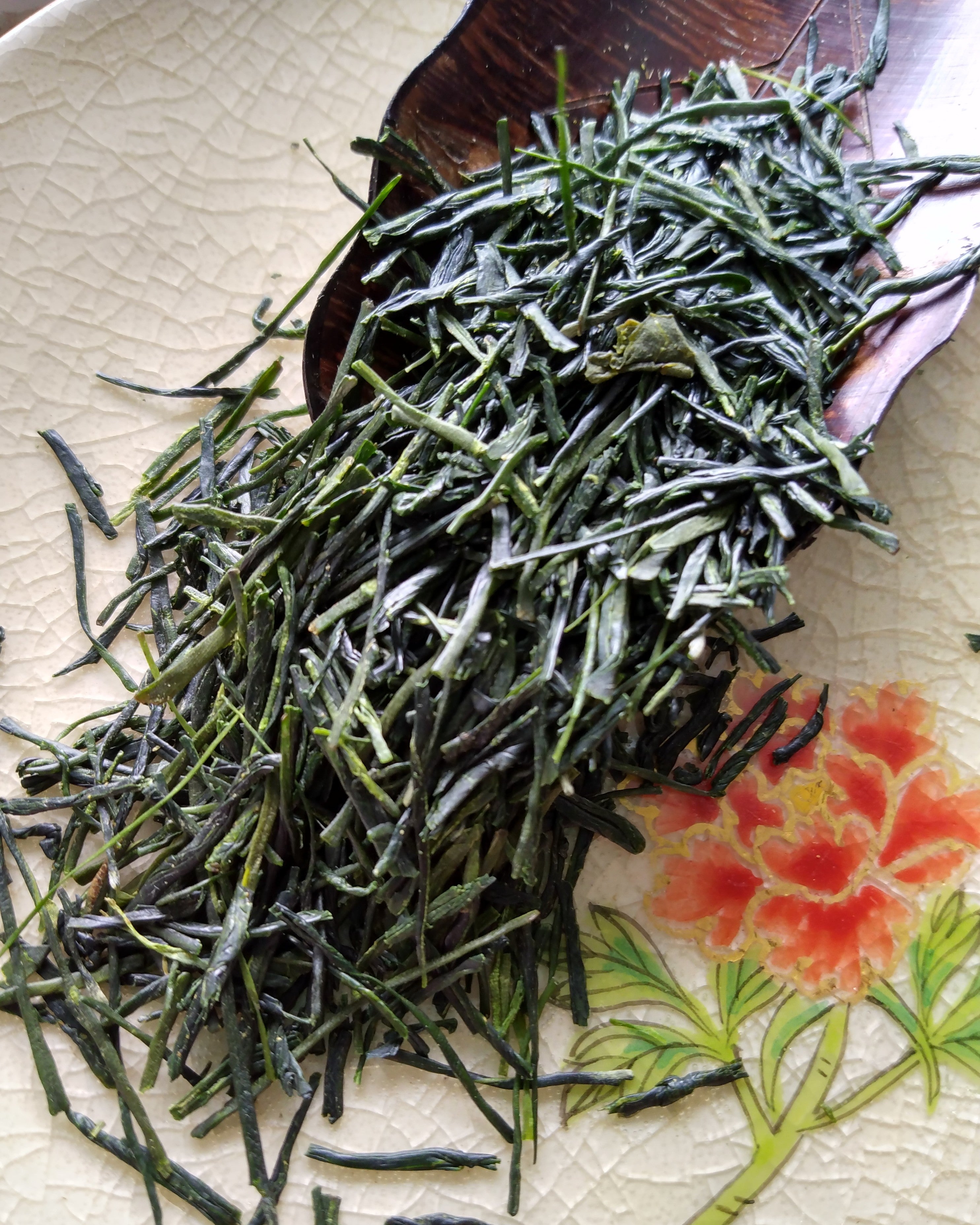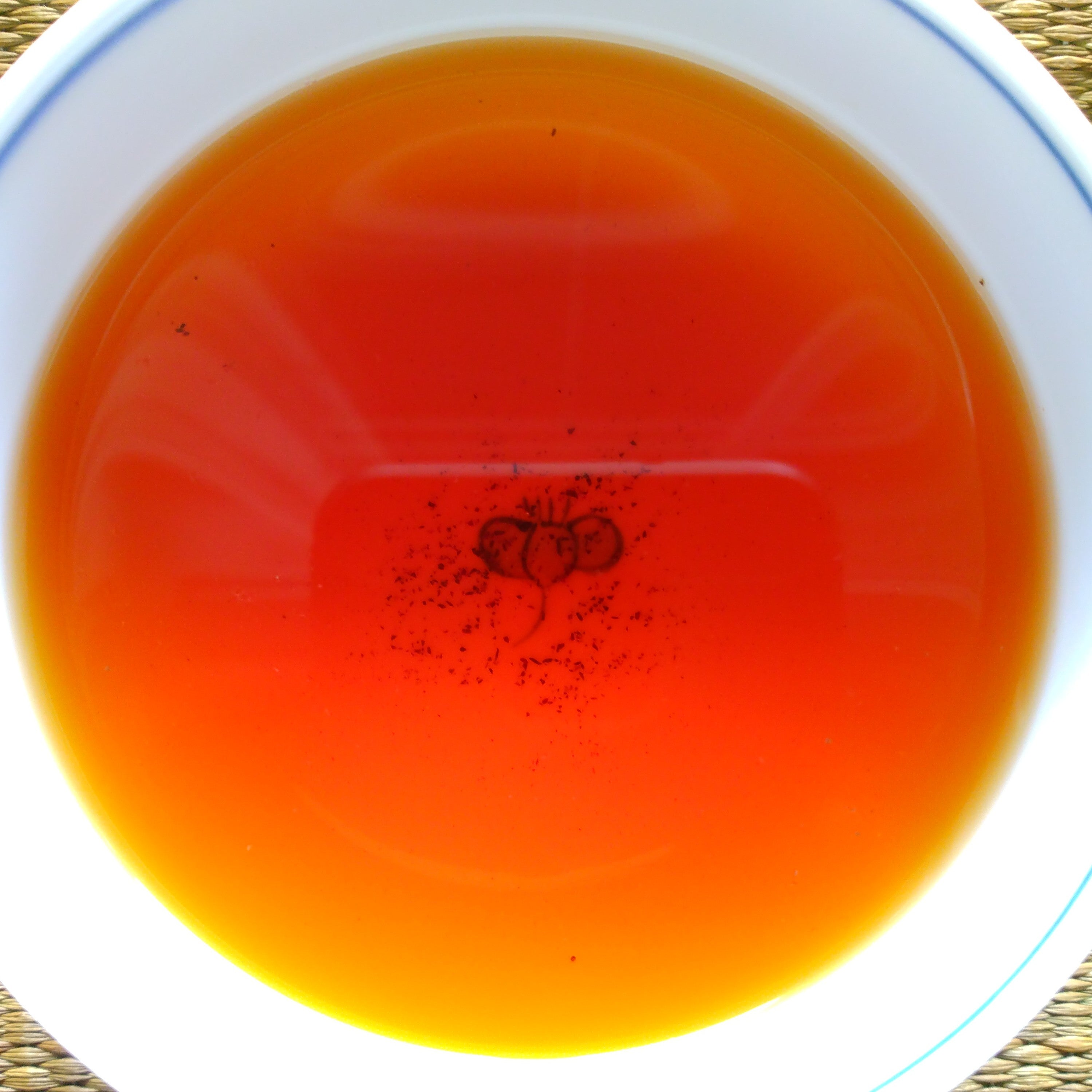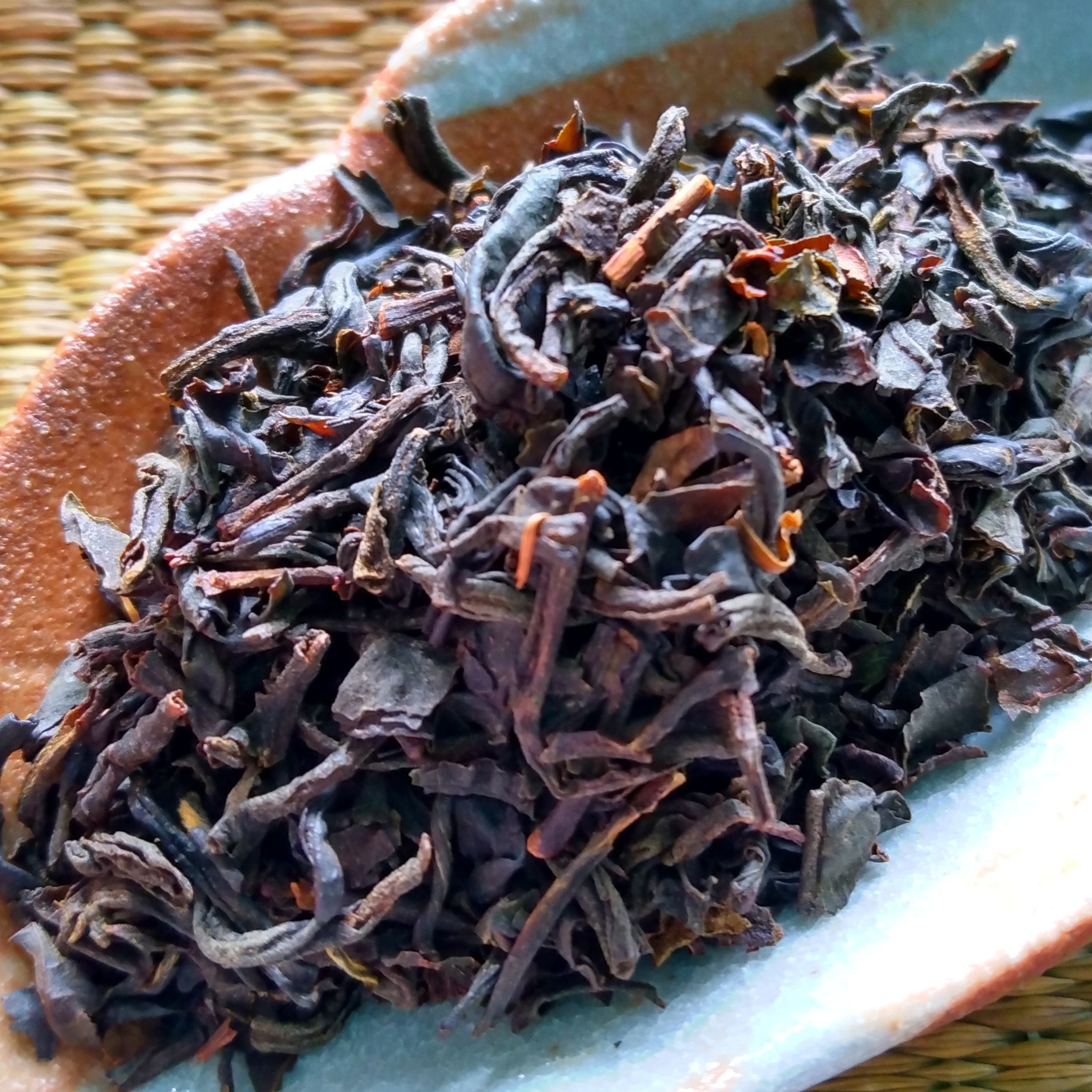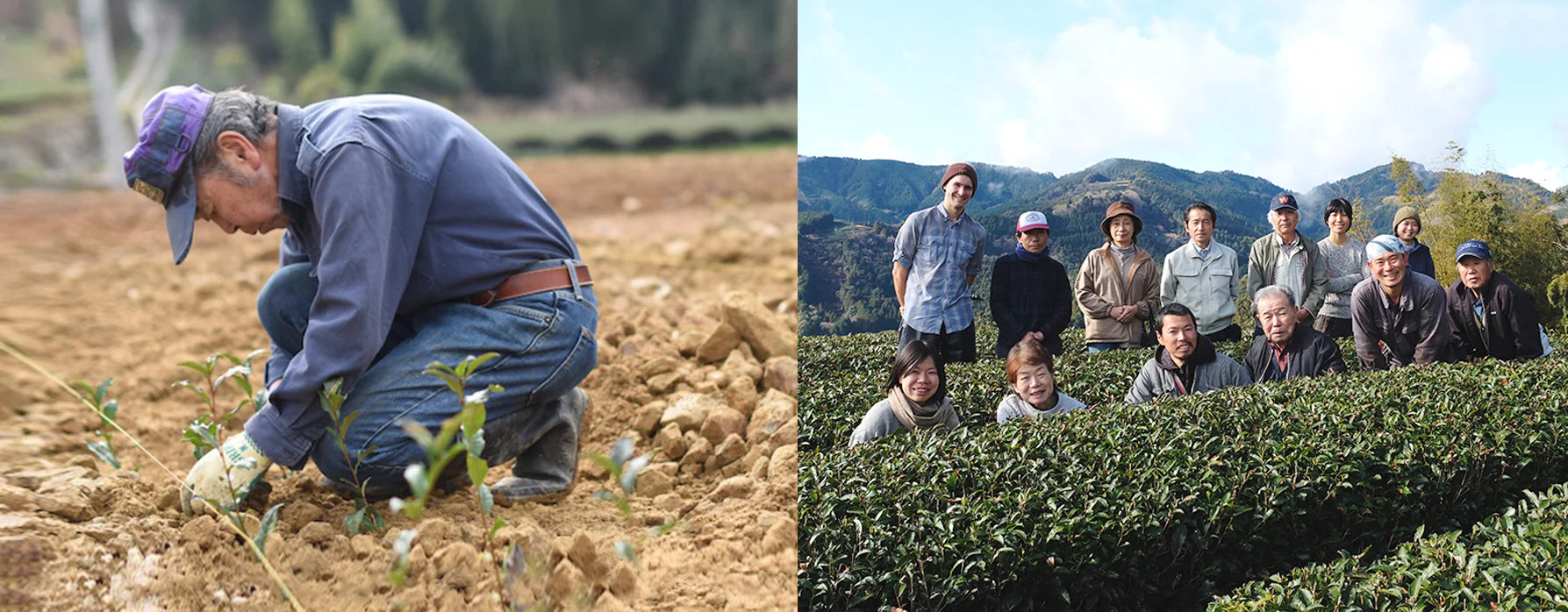Description
Setoya Momiji WaKoucha (Japanese Black Tea). 2024 Summer (2nd) Harvest. Naturally grown with no synthetic pesticides or fertilizers on the Kinezuka Family Farm.
Origin: Fujieda, Shizuoka Prefecture.
Cultivar: Yabukita
Setoya is an old name for the region, and is still an area of Fujieda City that has many tea fields. Momji means "Japanese Maple" and the autumn red color of Japanese maples is often used in reference to red foods and drinks. This WaKoucha from the major tea-growing region of Fujieda, in Shizuoka Prefecture, infuses to a rich dark amber to brick red color, with aromas of leather and black cherry and flavor notes of dark fruit and some citrus and floral notes in later infusions. It is smooth and balanced, with astringency diminishing after the first infusion. The natural sweetness of the tea lingers through multiple infusions. It's smooth and easy to drink and recommended to drink "as is", but if you prefer your tea with milk and sugar, I'd suggest brewing an additional minute or adding extra leaves, and use the milk and/or sugar very sparingly. Brew a bit stronger for iced tea as well, and the natural sweetness really comes without adding any additional sweetener.
Tenth-generation tea farmer Toshiaki Kinezuka was a pioneer of organic tea farming in Shizuoka Prefecture, which grows the largest prefectural share of tea in Japan. Starting natural farming methods in 1976, his dedication and practices have continued with his family, and have spread to other farmers and consumers in the region. From the family's website, "It took three years of hard work before finally getting a harvest that met his standards for quality, but thanks to a dedicated group of consumers and collaborators, he was able to persevere through the first few years and fulfill his dream of creating an entirely organic tea company. In the time since, he has continued to study how to maintain the highest standards of environmental stewardship while producing great tea. He has drawn other local farmers into the organic tea cooperative, and actively pursued the spread of sustainable tea production in Shizuoka, Japan, and the entire world. This practice now continues with his children and grandchildren."
Japanese Black Tea, or WaKoucha (literally "red tea,") is not nearly as well-known as Japanese Green Tea, even though black tea has been produced in Japan since the late 1800's as an export item to Europe and the United States. At that time, the Shizuoka region, particularly Mariko (now in the Suruga District) was a leading Black Tea producer in the late 19th and early 20th centuries.



